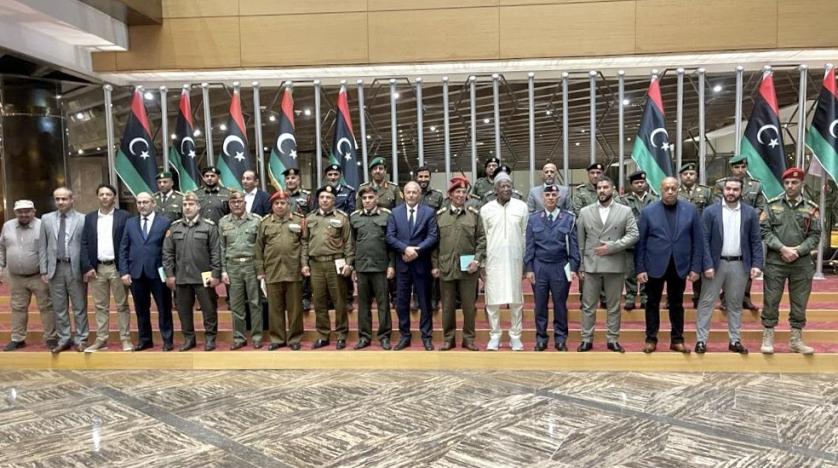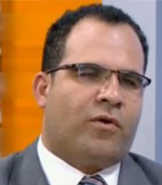The military agreement in Libya presents an opportunity to enhance security and foster the political process. In October 2020, a ceasefire agreement ended the war in Tripoli and initiated the political transition process. However, the process was stalled in late 2022 because elections could not be held. Despite this setback, there is optimism that the military agreement between the General Command of the Armed Forces and the Presidency of the Government of National Unity, as well as the progress made by the Joint Military Committee (5+5) during their meeting in Tripoli on March 25th, will put an end to the unsuccessful political transition stage. Addressing the intertwined security and military issues that underpin the Libyan situation comprehensively could result in a more stable phase.
The military agreements and understandings aimed at unifying the military institution in Libya have received widespread support from both international and local forces. The primary objective is to advance the stalled political process, as demonstrated during the extended security meeting held in Tripoli, which was supported by the UN and the international community.
Several outcomes were achieved during the meeting, including the establishment of a joint security force to oversee the electoral process, the cessation of foreign presence and evacuation of mercenaries, deployment of a joint security force to safeguard the southern oil fields, and conducting border control operations to combat transnational organized crime. The participants also urged the House of Representatives and the State Council to hasten the finalization of electoral laws.
Multiple Motivations
Realistically, it is challenging to expect the complete implementation of all announced outcomes, given the complexities of the issues at hand and the need for consensus among local and international players. The outcomes of the Joint Military Committee (5+5) meetings, held in Sirte, Libya or abroad, provide insights into this challenge.
The committee’s outputs highlight that certain fundamental and permanent issues are always on its agenda, such as the unification of the military institution. The committee has also prioritized ending foreign presence and expelling foreign mercenaries, which are central to the ceasefire agreement (October 2020) that guides its work. The political situation is addressed in stages based on developments.
Therefore, it is important to examine the outcomes of these meetings to better understand the progress made.
The main near-term issues that are likely to be resolved soon are the elections and the formation of a new unified authority that will end political division. The recent discussions have mainly focused on ensuring the security of the electoral process and the subsequent stage of enabling those who win the executive and legislative authority. To carry out this security process, a joint security force will be formed. The presence of armed faction leaders alongside security and military leaders shows that there is an agreement to include as many security groups as possible to ensure the success of the electoral process. There are several factors that support the possibility of achieving this path, including:
- One factor supporting the possibility of successfully resolving the issues surrounding the upcoming elections and the formation of a new unified authority is external pressure from international powers, such as the United States and European countries. These countries recognize the need to prioritize security concerns alongside political issues in Libya. Among the security concerns is the need to end the presence of the Russian “Wagner” group in Libya, which was discussed in recent meetings of the Joint Committee and by senior officials in the US administration, including William Burns, the director of US intelligence, with Libyan officials. These meetings indicate a significant shift in Western policy towards the Libyan National Army, and may lead to changes in alliances in eastern Libya, including those of Marshal Khalifa Haftar.
- A joint security force to secure oil fields: The formation of a joint security force is aimed at securing the oil fields, particularly in the “Zella” area, where the Russian Wagner group is based at the Jufra base. This group had previously taken control of the Tamanhint base from military forces loyal to the Government of National Accord during the 2019 Tripoli War. The Russian group also operates in southern Libya, near the Chad border, where they have interests aligned with rebels against the transitional authority in Chad. According to Western reports, the U.S. Africa Command (AFRICOM) is expected to provide support to this joint force. However, it is too early to determine the expected outcome of this step.
- Reaching consensus among internal parties: The increasing number of joint meetings among internal parties has led to a possible level of consensus on common interests and new rules for managing the situation in the upcoming phase. These internal parties include political and social forces that view the current situation in Libya as a dead end, with institutions lacking legitimacy and the need for change being imperative. Although these forces are scattered and not under a single political umbrella, their rejection of the current situation in the Libyan public sphere cannot be ignored. Progress on the military path constitutes direct support for these forces, as the political equation in Libya has been dominated by the continuous lack of consensus between the House of Representatives and the State Council in achieving the constitutional base and electoral laws.
- Increasing Calls to Complete the Legal Framework: Participants in the discussions emphasized the urgent need for the House of Representatives and the State Council to complete the legal framework as a complementary measure to the current initiative. It’s important to note that a new roadmap has emerged in the Libyan reality, and disagreements over which roadmap to adopt and who is authorized to prepare and approve it are no longer expected to continue. This new dynamic in the Libyan scene has the potential to produce new mechanisms to complete the procedural frameworks necessary to hold elections.
Two Main Variables
To bring about change in Libya’s political transition process, there is a serious attempt to converge these considerations through the electoral process, the formation of a unified authority, and the establishment of a joint military leadership. However, two factors must be taken into account:
Firstly, it is crucial to prevent any security chaos that could hinder the electoral process, even to a minimal extent that could compromise the legitimacy of the political process. Therefore, forming a joint military and security force can establish a new balance of power in Libya to enhance control over the security process and counter any attempts to disrupt the scene by forces that might not benefit from a peaceful and stable Libya.
The second factor to consider is the need to avoid relying solely on the House of Representatives and the State Council in shaping Libya’s future. While these two parties must agree on the legal framework for the elections, UN envoy Abdullah al-Battali has suggested the possibility of bypassing them if they continue to waste time and opportunities. To this end, he proposed the formation of a steering committee as a possible alternative to the two councils, should they fail to form the (6+6) committee responsible for drafting the electoral laws. Although the House of Representatives has already formed its team, the role of the High Council of State remains uncertain. Battali has called for their participation following the security committee meeting in Tripoli, and it is likely that they will respond to this demand. Not relying solely on the House of Representatives and the State Council can help the Libyan political transition process avoid potential delays and obstacles.
Potential Opportunity
Although the pace of progress towards holding elections in Libya is faster than anticipated, there are still potential obstacles to overcome. One such obstacle is the establishment of a unified political authority, which will require various efforts and agreements. Additionally, there is a need to contain movements that may destabilize the situation, such as those challenging the thirteenth constitutional amendment step and the role of the previous regime in the political future. Despite the progress made so far, further steps must be taken to meet the necessary requirements.


